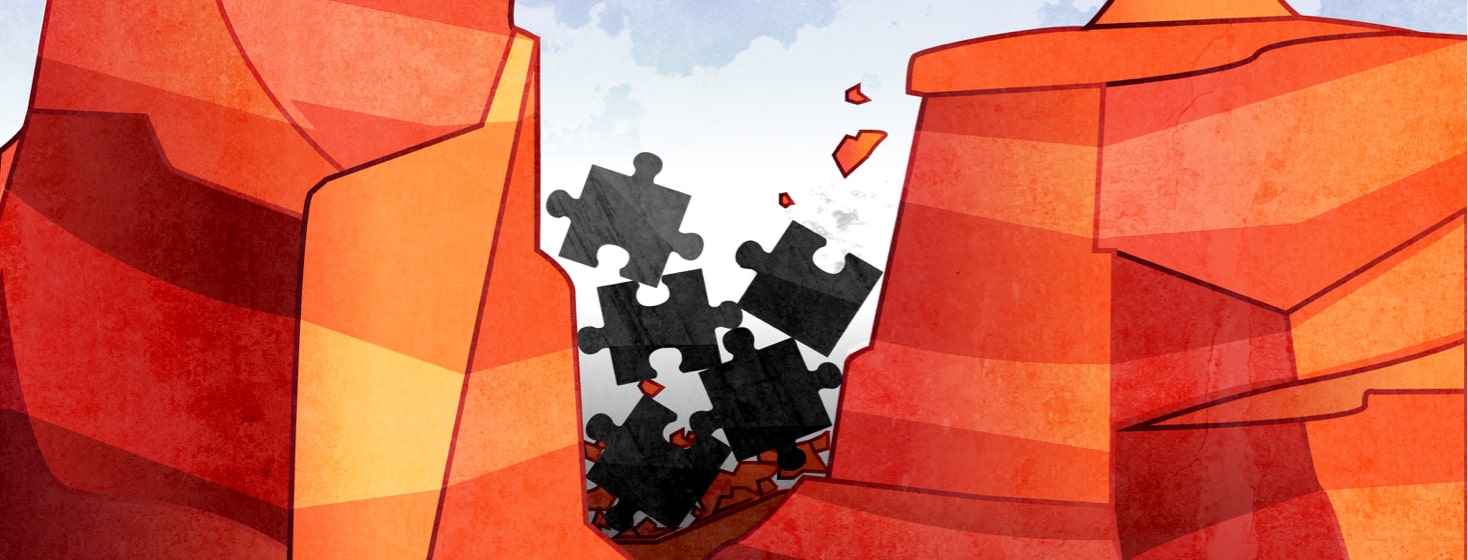Hitting Rock Bottom With Psoriatic Arthritis
Hitting rock bottom is usually reserved for situations involving addiction or perhaps abusive relationships. However, the reality is that there are a million and one situations in which hitting rock bottom could occur.
You could hit rock bottom financially, emotionally, physically, even all of the above at the same time. But hitting rock bottom when it comes to psoriatic arthritis can have a big impact on not only the obvious physical health but your mental health as well.
What does hitting rock bottom with psoriatic arthritis feel like?
You see, I’m a firm believer in the fact that our mental and emotional health plays a huge part in the management of psoriatic arthritis symptoms. Stress, relationship issues, and even our self-esteem play a large role not only in triggering flares but also in determining our ability to manage those flares.
In my experience, mental health and physical health are intertwined in ways that science has yet to discover. Rock bottom with PsA is like a giant, twisting physical and mental tornado.
My own rock bottom story
My recent rock bottom event was after an appointment with a substitute rheumatologist. My regular rheumy is on maternity leave, I’ve been struggling with my latest biologic, coping with a seemingly never-ending flare, and felt like I’ve just exhausted all of my “plans” to manage my chronic illnesses.
To be fair, I probably went into the appointment with higher expectations than I should have. I wanted to have a frank conversation about my future, possibly taking a break from biologics, and even changing out some other medications. I expected this poor stand-in doctor was to have all the answers to these complex questions.
Psoriatic arthritis treatment fatigue
After which it was obvious he had barely glanced at my chart before coming into the room. I declared to him that I was considering taking a break from biologics and was met with a mildly amused stare. It pretty much went downhill from there.
Needless to say, I suppose, but I didn’t get any real answers to my questions. I felt lost. I felt confused and frustrated. As I sat in my car and let the anger and despair wash over me, tears sprang to my eyes. My thoughts spiraled around everything that I knew about living with this disease and for the first time, I felt truly hopeless. Despondent. I was truly in the depths of despair.
Psoriatic arthritis was managing me
This disease, my PsA, wasn’t being “managed” by me or even my doctors, at all. It was much more like it was managing me. It decided how each day would go. It decided who I would be able to see and what I’d be able to do. In that hopelessness, it felt like I had a ticking time bomb sitting in my lap that I had no idea how to diffuse.
I wish I could say from that moment on I vowed that I would never let my condition control me. But, I don’t think that is very realistic. I also wish I could say that in those moments where I found myself at rock bottom that I was magically given the answer to how exactly I would carry on with living with this disease.
I wasn’t given the answers. All I had to show for it, after years of treatment, are momentary glimpses of who I used to be and a mountain of medical bills.
When you're at rock bottom, look up
What I do know is that I cannot continue in this way. I have to make some sort of change. I need to add people to my healthcare team that is willing to help me find the answers and support that I need. Our bodies are entire beings made up of a million little systems that all work together.
Psoriatic arthritis is an entire body disease and we need to find some entire body solutions. It is no longer acceptable to look at one part of the body and try to fix it? Must we go without looking at the bigger picture and how everything actually works together?
Putting together the pieces of psoriatic arthritis
Putting out the fires temporarily doesn't work. So what do we do now? Where do we go from here? Where are all the doctors willing to simultaneously accept the fact that yes, pharmaceuticals scientifically help manage disease progression?
There also must be an acceptance that there is a big piece of the puzzle that is still missing. Where can we find the missing piece?

Join the conversation